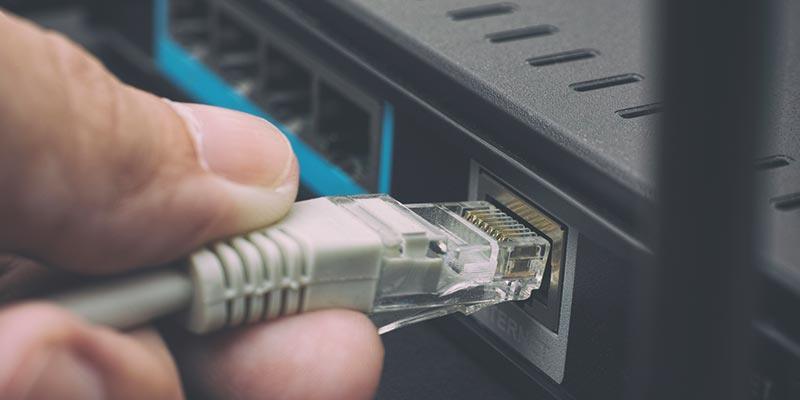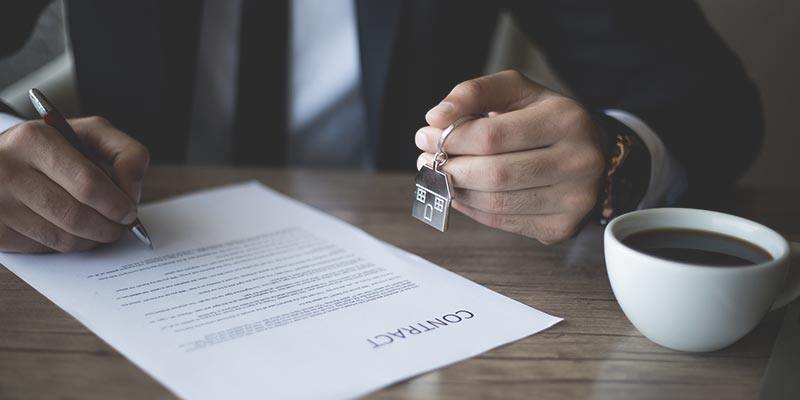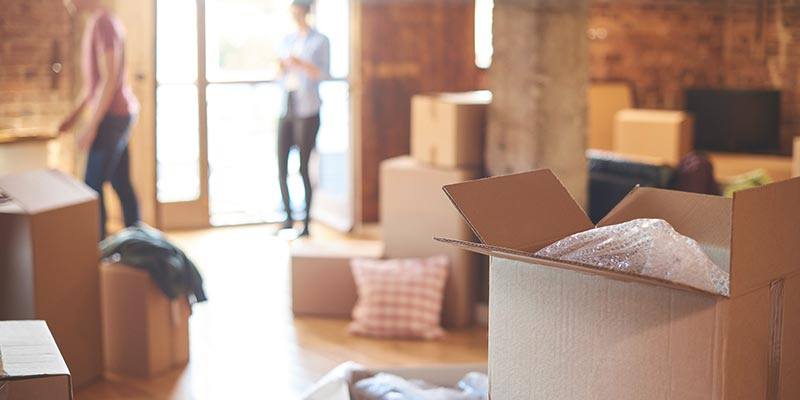Finding the right property can be a daunting task. With so many things to think about, it can be quite intimidating going into the world of renting for the first time. But in reality you don’t have to feel intimidated, because we've used our years of experience in renting out apartments to create a checklist of all your need-to-knows.
1. How much can you afford to spend on rent?
It’s important to establish and decide on your budget before you begin your renting search. This way you’ll have clear financial guidelines and will be able to narrow down your rental search to find your perfect home.
Compare your budget to apartment listings on websites like rightmove.com to narrow down your search to areas that you can afford the home that you want. A good rule of thumb for what most people can afford to spend on rent is no more than 30% of your take-home pay.
2. How much money will you need for bills?
Once you’ve settled on your monthly renting budget, it’s time to look at the other costs too. This includes the monthly living cost of utility bills, council tax and food prices. Not forgetting payments such as internet and TV licence – you need to consider all your outgoings when making the move to rent.
Council tax and utility bills will vary based on property value and energy efficiency, so be prepared to factor in some variation depending on what kind of property you are after. You should be able to get good estimates of these from letting agents during a viewing.
3. How much money do you need set aside for deposits?
Many – if not all – properties require a tenancy deposit as well as a holding fee on your apartment.
Since 1 June 2019, tenancy deposits have been capped at a maximum of 5 weeks’ rent (if the total annual rent is less than £50,000). If the annual rent is more than £50,000, it is capped at 6 week’s rent. Your landlord is legally required to keep your deposit in a government-approved Tenancy Deposit Scheme for the duration of your tenancy.
Once you move out at the end of your tenancy, your deposit will be refunded to you in full, as long as you’ve paid all your rent and left the property in good condition.
Holding fees are a fee that letting agents may charge you to take the property off the market until your application is approved. This is capped at 1 weeks’ rent and is refundable if your application is approved.
4. How Long Are You Staying?
Are you looking for long-term, short-term or a student-let? Different agencies and developments lease out their properties for various amounts of time, with some requiring a minimum tenancy length of 12 months. Understanding the different types of renting agreements available to you is always important when deciding on your renting terms.
Currently being considered by the government as of 17 May 2023, is the Renters (Reform) Bill, which will abolish fixed-length tenancies and instead adopt periodic tenancies that run month-by-month. This will give renters more flexibility at deciding when they want to move out, as they would only need to give two months’ notice instead of having to wait until the end of a fixed-term tenancy.
5. What Should You Look Out For?
Once you’ve found a few properties that you want to view, it’s important to know what you’re looking for on your tour. Is the property and development clean? It should be spotless on your property viewing. If the overall complex isn’t tidy, it’s worth asking about the maintenance of the public spaces – are they serviced regularly?
When having a good look around, make sure to take note of the amount of storage space. Is the space available suitable to your needs? It’s always important to make sure your future home matches your lifestyle. If you like socialising and having friends over, take a look whether there’s any social spaces available for you to hang out in your building complex.
Don’t shy away from asking questions either. It’s good to know everything before you sign on that dotted line. Are you allowed to hang things on the wall? Is there central heating? Where are the recycling facilities? Does it come furnished or unfurnished? Make a list of questions you want to find out so you know exactly what you’re looking out and asking for.
6. Things to consider if you’re sharing with friends
If you’re moving in with friends or thinking of a flatshare, be sure to double-check the guidelines on having roommates.
This is especially the case if you are one of five friends wanting to share a house, as a landlord would need a HMO (house in multiple occupation) licence to rent their property to this many people. Not all landlords have this.
7. Will your landlord allow pets?

If a furry friend will be moving with you too, you’ll want to make sure that your landlord allows pets. Many rental properties don’t allow animals in their residences, however, some are very pet-friendly – so, always make sure you ask if your dog, cat or fish can come with you.
Right to pet ownership for renters is another topic up for debate in the Renters (Reform) Bill. If passed by parliament, renters will have the legal right to request to have a pet in their home. In exchange, landlords will be allowed to require their pet-owning tenants to have insurance that covers damage caused by pets.
Under the new bill, if a landlord unreasonably refuses their tenant’s request to have a pet, tenants can dispute this and lodge a complaint to the Private Rented Sector Ombudsman where a final decision can be made based on evidence provided by both parties.
8. Do you need a guarantor?
Depending on your current situation, you might need to be prepared for agencies or landlords to ask for a guarantor. A guarantor is a person who would be liable to make rent payments if for some reason you are unable to.
Common reasons that you may be asked to provide a guarantor are:
- You are a student
- You have never rented an apartment before
- Your income is not sufficient to afford the property on your own
- You are moving to the UK from abroad and have no proof of income in this country yet
It would be wise to have a guarantor lined up (ideally someone based in the UK) just in case you’re asked for one. If you cannot provide a guarantor, it is quite common for agencies to require you to pay six months or more of your rent up-front instead of once a month.
9. Do you have the documents you need?
Make sure you have all the documents you need to rent an apartment in order. You'll often need them for your rental application to be approved and to pass any credit checks. These include proof of income or full-time employment such as payslips (or tax returns if you’re self-employed). These will serve as evidence to the letting agent or landlord that you can afford the property you wish to rent so that they can accept your application.
Private landlords and agents are legally required to carry out a ‘right-to-rent’ check, where your immigration status will be checked to make sure you have the right to live in the UK. If you are a British citizen, you’ll simply be required to show your passport or birth certificate. Otherwise you’ll need to provide documents that show you have permission to be in the UK.
There you have it – renting doesn’t seem too intimidating now, does it? Contracts and living arrangements to suit you are just two of the reasons why renting is the way to go. If you need a few more renting tips, check out the rest of our blog – it’s full of handy rental advice.












